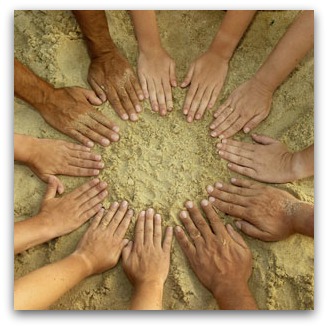 Once, my mother reprimanded a young student she taught music to at an expensive private school. He told her that his dad could 'buy and sell' her. His father was apparently wealthy.
Once, my mother reprimanded a young student she taught music to at an expensive private school. He told her that his dad could 'buy and sell' her. His father was apparently wealthy.
Once, while accompanying a friend to his year 12 formal at one of Melbourne's most selective and expensive boys schools, a student asked what school I went to. When I mentioned the name of my small state school in Melbourne's northern suburbs he responded, 'Well, you're moving up in the world.'
As easy as it would be to draw from these anecdotes that private schools breed poor behaviour, rude children are just that — class has little to do with it.
People who have had a taste the different classes within Australia (and they do exist) will understand that where humility is concerned, notions of privilege or disadvantage rarely come into it. Children learn behaviours from their surroundings, and as they are exposed to a greater diversity of experiences, their behaviours develop into those which are socially acceptable, and socially advantageous.
The little boy interested in buying and selling his teachers quickly learned — from the principal and his family, who were horrified — that he had watched too many movies. The young man wearing his entitlement on his blazer sleeve will probably have learned by now that there's no social advantage in making oneself unlikable.
Of my 13 years of primary and secondary school, four were in Catholic schools, the other nine in government schools. The Catholic schools were not 'elite'; their fees were low, and students came from all backgrounds. The government school was similar, but had an ESL school affiliated, so my classmates came from all over the world.
It was a good school by any measure except academic, where I learned about Coleridge and Beckett, the languages spoken in Eritrea, how to write a letter to the prime minister, and the meaning of Ramadan.
Students from that school are now themselves teachers, academics, artists, mechanics, students, business owners, real estate agents, nurses, dole bludgers, doctors, shopkeepers, musicians, and public servants. Some are in jail and some are dead.
Many of them are doing what would have done regardless of what school they had been zoned to, because they had great teachers, and families who were able to support their development, with or without money. Some of them didn't have a privileged family life, and needed greater care than teachers could be expected to provide. It is they who don't have the lives they deserve, or don't have lives at all.
Although the uni I went to was just ten minutes on the tram from my high school, some former classmates thought it was posh, or part of an inaccessible world. In reality, the students at uni were just as varied in their personal discipline, academic skills, and interests, as the students in my high school had been.
Some of them had simply come from a school system that emphasised the importance of university admission. This is an impoverished approach to education, and is not limited to private schools.
Students ought to be given the opportunity to encounter reality before they enter it. Reality being that people are poor; that some have survived torture and trauma that can make them dysfunctional; that there are barriers to success outside the power of one's 'personal responsibility'. Without such opportunities, education is about little more than tertiary admission, or the promise of a life without ever confronting these realities.
Children learn behaviours from their surroundings, so it follows that for a thorough education, their surroundings should be as diverse as possible. Limiting interactions between classes, and consequently between ethnic identities and ability levels may facilitate an easy entry into university.
But education should be about much more than grooming children to be workers and consumers. Learning from students with diverse backgrounds and abilities supports a holistic education.
There is serious disadvantage in Australia. You won't see it in the wealthy private schools, or even in the state schools in affluent neighbourhoods. Pouring more resources into the disadvantaged within the education system won't totally extinguish the inequities we face at birth. But ignoring the emancipatory power of education is a sure way of perpetuating disadvantage. Rather, of condoning it.
 Ellena Savage is a Melbourne writer who edits Middlebrow, the arts liftout in The Lifted Brow.
Ellena Savage is a Melbourne writer who edits Middlebrow, the arts liftout in The Lifted Brow.